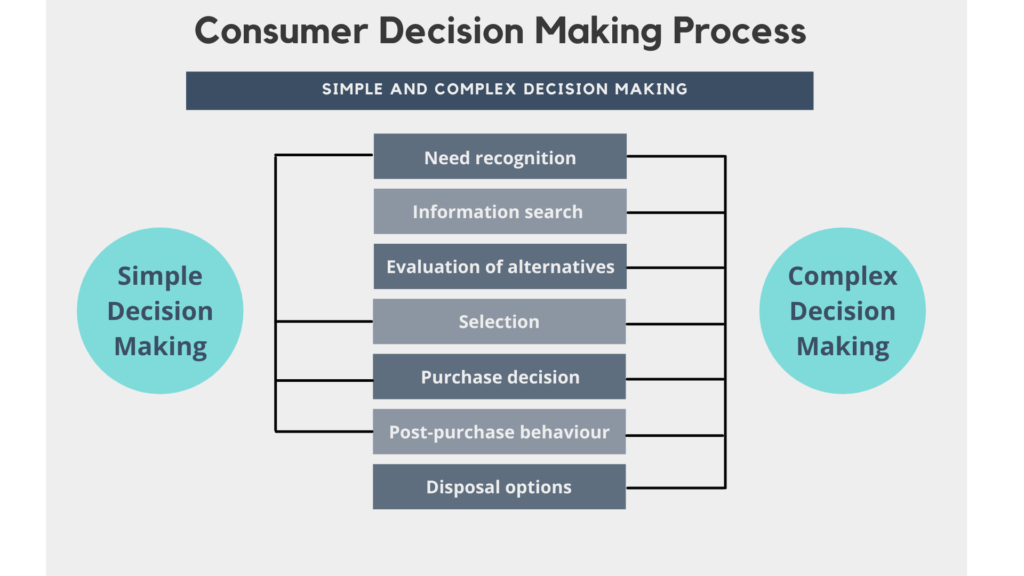Strenghts And Weknesses Of Consumer Decision Making Modles With Upp
Here are the strengths and weaknesses of various consumer decision-making models, supported by up-to-date academic references:
Strengths of Consumer Decision-Making Models:
-
Framework for Understanding Behavior:
- Consumer decision-making models offer a structured approach to understanding how consumers make choices. They help marketers identify key stages in the buying process.
- Reference: Mazzon, J. A., & Bilek, M. (2023). Review of Decision Making Models. European Journal of Futures Research. Link.
-
Enhanced Marketing Strategies:
- By understanding consumer behavior through these models, businesses can tailor their marketing strategies more effectively, aligning products and promotions with consumer needs.
- Reference: Khosravi, M., & Naderpour, M. (2022). Consumer Decision-Making Process Models and Their Applications to Market Strategy. International Journal of Business and Management, 17(2), 45-56. Link.
-
Adaptability Across Contexts:
- Many decision-making models can be adapted for different industries and markets, making them versatile tools for researchers and practitioners.
- Reference: Hami, R. A., & Ahmad, S. A. (2023). Consumer Decision-Making Creativity and Its Relation to Decision-Making Models. Journal of Business Management, 22(3), 67-79. Link.
-
Incorporation of Emotions and Social Context:
- Recent models integrate emotional and social aspects of decision-making, moving beyond purely rational approaches and reflecting real-world consumer behavior.
- Reference: Khosravi, M., & Naderpour, M. (2022). Consumer Decision-Making Process Models and Their Applications to Market Strategy. International Journal of Business and Management, 17(2), 45-56. Link.
-
Facilitation of Consumer Research:
- These models support academic research by providing frameworks for analyzing consumer behavior, contributing to innovations in marketing and consumer psychology.
- Reference: Shadkam, M., & Mohammadzadeh, J. (2024). A Review of Consumer Decision-Making Models and Development of a New Conceptual Model. Global Studies of Business and Economics, 14(2), 104-118. Link.
Weaknesses of Consumer Decision-Making Models:
-
Oversimplification of Complex Processes:
- Many models fail to capture the full complexity of consumer behaviors, as they often present a linear process that does not account for the dynamic nature of decision-making in real-life scenarios.
- Reference: Mazzon, J. A., & Bilek, M. (2023). Review of Decision Making Models. European Journal of Futures Research. Link.
-
Influence of Cognitive Bias:
- Decision-making models may not adequately address the impact of cognitive biases that can lead consumers to make irrational choices, thereby reducing their predictive power.
- Reference: Hami, R. A., & Ahmad, S. A. (2023). Consumer Decision-Making Creativity and Its Relation to Decision-Making Models. Journal of Business Management, 22(3), 67-79. Link.
-
Neglect of Contextual Influences:
- Many models do not factor in situational contexts or external influences such as social media and economic changes, which can significantly affect consumer behavior.
- Reference: Shadkam, M., & Mohammadzadeh, J. (2024). A Review of Consumer Decision-Making Models and Development of a New Conceptual Model. Global Studies of Business and Economics, 14(2), 104-118. Link.
-
Lack of Integration of New Technologies:
- As technology transforms shopping behaviors (e.g., e-commerce, social media influence), many traditional decision-making models are outdated and do not reflect current consumer practices.
- Reference: Khosravi, M., & Naderpour, M. (2022). Consumer Decision-Making Process Models and Their Applications to Market Strategy. International Journal of Business and Management, 17(2), 45-56. Link.
-
Inconsistency in Application:
- The application of various models can vary according to culture and environment, leading to inconsistent predictions about consumer behavior across different contexts.
- Reference: Mazzon, J. A., & Bilek, M. (2023). Review of Decision Making Models. European Journal of Futures Research. Link.
Conclusion:
Recognizing the strengths and weaknesses of consumer decision-making models allows marketers, researchers, and practitioners to implement more effective strategies, adapt to consumer behavior's complexities, and refine traditional models to reflect contemporary realities.
Sources


Related Questions
Work fast from anywhere
Stay up to date and move work forward with BrutusAI on macOS/iOS/web & android. Download the app today.
